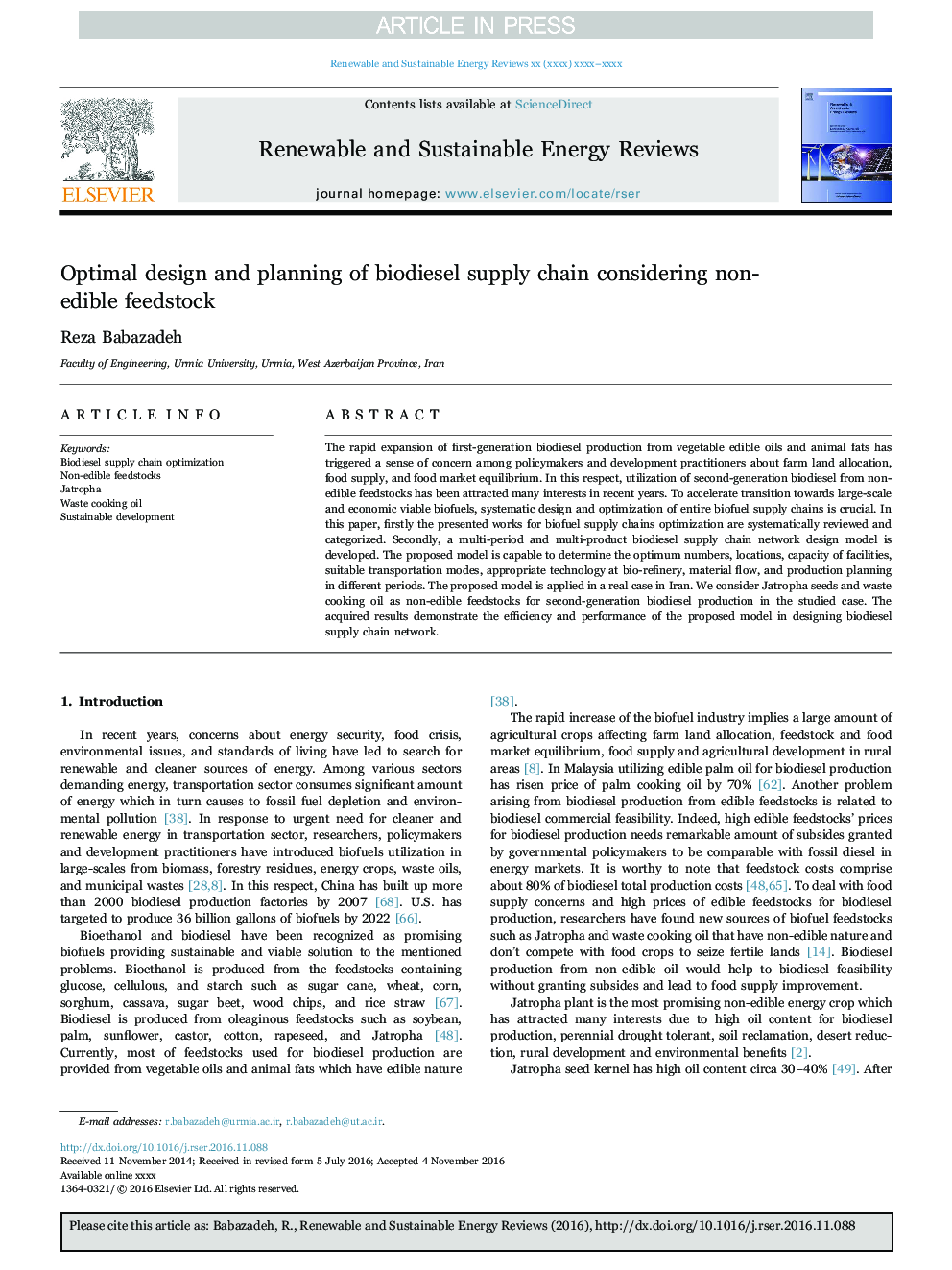| Article ID | Journal | Published Year | Pages | File Type |
|---|---|---|---|---|
| 5482903 | Renewable and Sustainable Energy Reviews | 2017 | 12 Pages |
Abstract
The rapid expansion of first-generation biodiesel production from vegetable edible oils and animal fats has triggered a sense of concern among policymakers and development practitioners about farm land allocation, food supply, and food market equilibrium. In this respect, utilization of second-generation biodiesel from non-edible feedstocks has been attracted many interests in recent years. To accelerate transition towards large-scale and economic viable biofuels, systematic design and optimization of entire biofuel supply chains is crucial. In this paper, firstly the presented works for biofuel supply chains optimization are systematically reviewed and categorized. Secondly, a multi-period and multi-product biodiesel supply chain network design model is developed. The proposed model is capable to determine the optimum numbers, locations, capacity of facilities, suitable transportation modes, appropriate technology at bio-refinery, material flow, and production planning in different periods. The proposed model is applied in a real case in Iran. We consider Jatropha seeds and waste cooking oil as non-edible feedstocks for second-generation biodiesel production in the studied case. The acquired results demonstrate the efficiency and performance of the proposed model in designing biodiesel supply chain network.
Related Topics
Physical Sciences and Engineering
Energy
Renewable Energy, Sustainability and the Environment
Authors
Reza Babazadeh,
